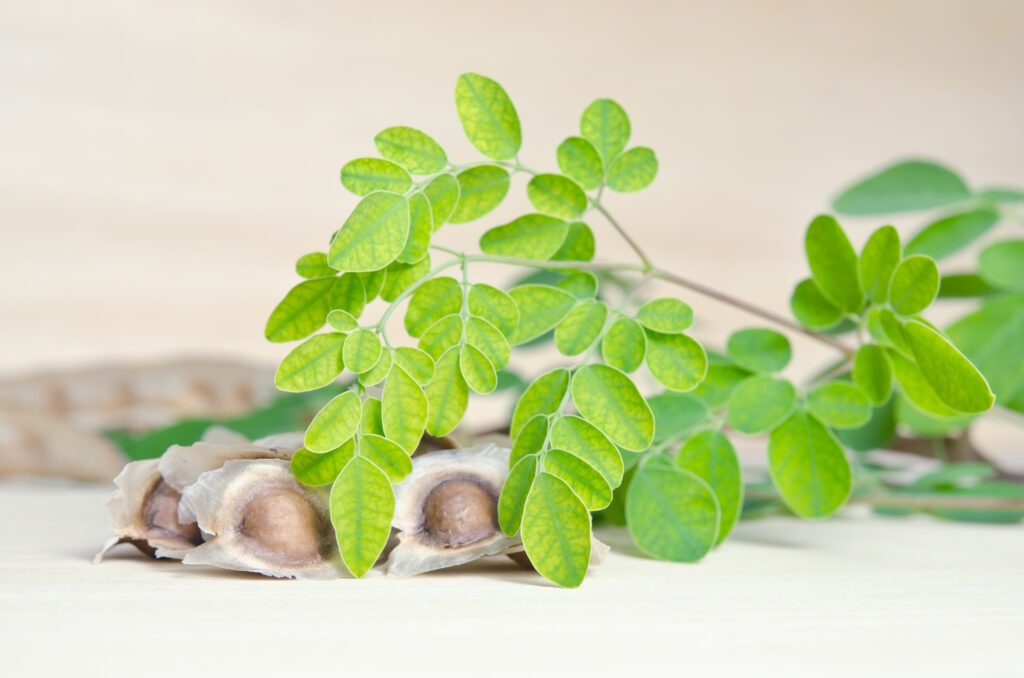
Moringa Leaves vs. Moringa Seeds: What’s the Difference — and Which One Belongs in Your Routine?
A few years ago, a friend handed me a ziplock bag filled with round little seeds and said, “Try one. It’s Moringa — it’s good for you.”
I had been taking Moringa capsules for months at that point and felt great — more energy, fewer colds, and way less afternoon brain fog. But this was different.
“I thought Moringa came from the leaf?” I asked.
That night, curious (and maybe a little too trusting), I popped a seed into my mouth. Within an hour, I was bloated and in the bathroom. Turns out, Moringa seeds are no joke.
That moment led me down a rabbit hole of research — and today, I want to share what I’ve learned about the difference between Moringa leaves and Moringa seeds — so you can decide what’s right for you.
Moringa Leaves: The Gentle, Everyday Superfood
Think of Moringa leaves as nature’s daily multivitamin. For centuries, people across Asia and Africa have used the leaves to support energy, immunity, and overall health.
They’re dried, ground into powder, or encapsulated — like the capsules we proudly make.
Why People Love Moringa Leaf:
High in vitamins A, C, E, and B-complex
Rich in minerals like calcium, magnesium, iron, and potassium
Contains complete plant protein — all 9 essential amino acids
Loaded with antioxidants like quercetin and chlorogenic acid
Known for anti-inflammatory and immune-supporting effects
When I first started taking Moringa leaf powder, I added it to smoothies. But if I’m honest, it tasted a bit… grassy. Capsules were a game-changer. Same benefits, zero green aftertaste.
Who It’s Best For:
Busy moms looking for more energy without extra coffee
Anyone fighting seasonal colds or low immunity
People wanting a gentle detox without harsh cleanses
Vegans or vegetarians looking to boost iron and protein
Everyone who wants an easy, natural health routin
Moringa Seeds: Powerful… but Proceed with Caution
Moringa seeds, on the other hand, are like that super intense workout class you only do once a week — effective, but not for every day.
The seeds come from the pods of the Moringa tree and are traditionally used for water purification, gut cleansing, and even inflammation relief. But unlike the leaf, the seeds are more targeted than holistic.
Seed Superpowers (and Side Effects):
Rich in healthy fats (omega 3, 6, and 9)
May support healthy cholesterol and blood pressure
Can act as a natural laxative or detoxifier
But… can also cause nausea, bloating, or cramps if taken improperly
My Honest Experience:
The one time I tried Moringa seeds, it felt like I’d taken a strong herbal cleanse. Some people love that, especially for short-term detox. But for me — and most people I talk to — it’s too much for daily use.
So, What’s the Verdict?
Let’s break it down simply:
| Feature | Moringa Leaves | Moringa Seeds |
|---|---|---|
| Safe for Daily Use | ✅ Yes | ❌ Not recommended |
| Rich in Vitamins & Antioxidants | ✅ Yes | ⚠️ Minimal |
| Supports Energy & Immunity | ✅ Yes | ⚠️ Occasionally |
| Good for Gut Health | ✅ Gentle support | ✅ Strong laxative effect |
| Side Effects | Rare | Common if overused |
| Taste | Mild/Earthy | Bitter & pungent |
| Best Form | Capsules or powder | Whole seeds (chewed or swallowed) |
If you’re looking for a clean, consistent, and safe way to boost your wellness — Moringa leaf supplements are your go-to (But of course, we may be a bit biased). It’s nature’s multivitamin, gentle on the body, and perfect for long-term use.
Moringa seeds, on the other hand, are more potent and best reserved for specific needs, occasional detox, or under professional guidance.
Statements regarding dietary supplements have not been evaluated by the FDA and are not intended to diagnose, treat, cure, or prevent any disease or health condition.
